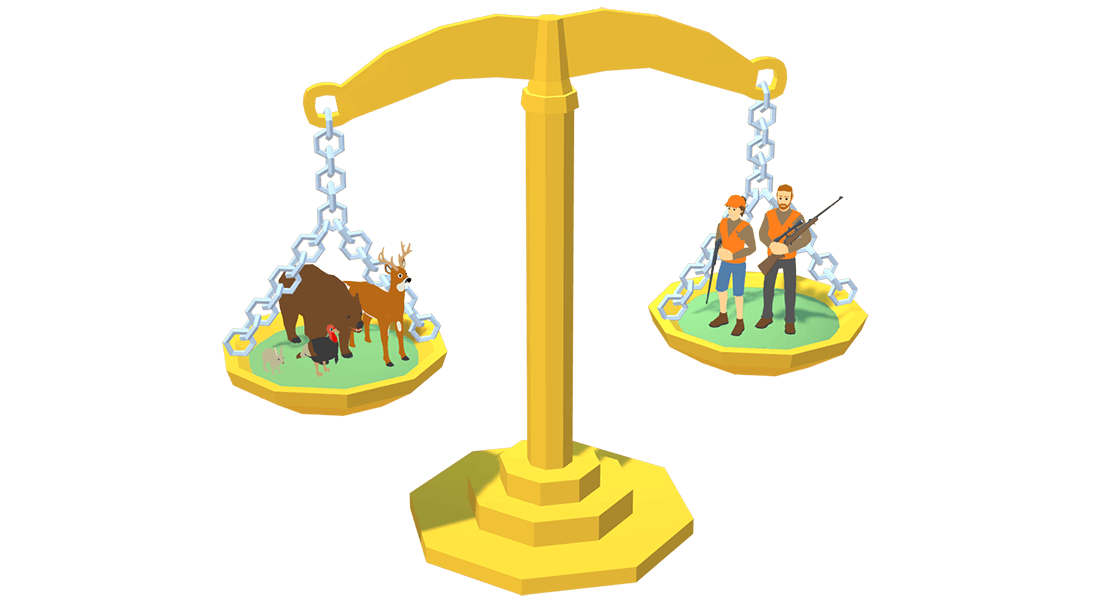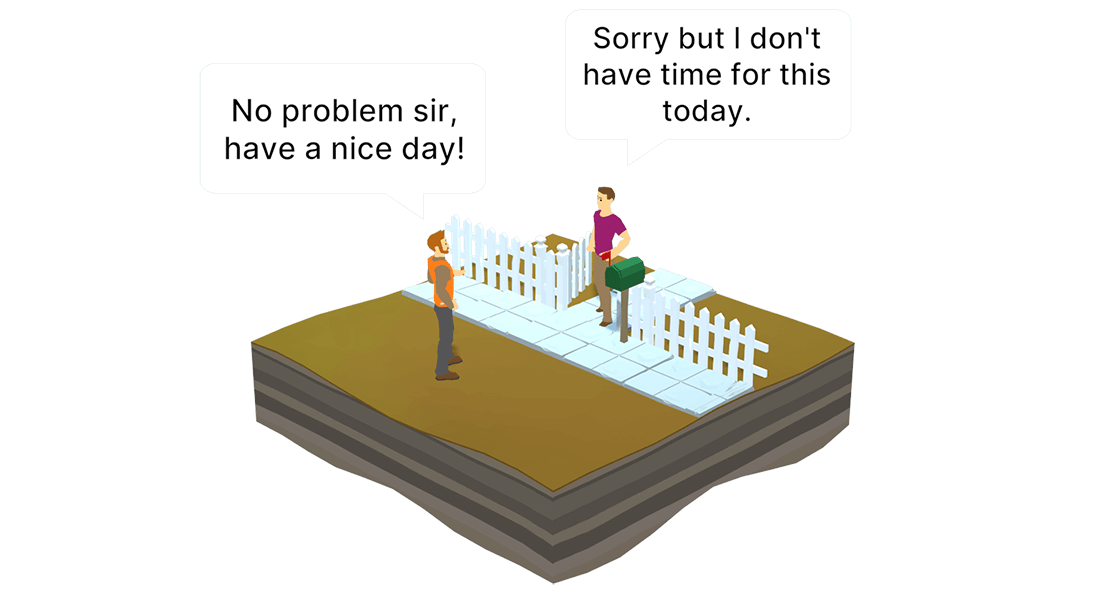Conservation Laws Introduction
Prior to the settlement of North America by Europeans, wildlife was abundant. Native Americans hunted with primitive weapons for their livelihood. When fur traders and settlers arrived on the scene, a new era of hunting began. Black powder and smokeless powder firearms replaced the bow and arrow. Within a few decades, market hunting seriously reduced buffalo and antelope herds. The need for laws to control the wildlife harvest became important.
Hunting today is based on a very important ground rule: wildlife belongs to all the people. Our successful conservation of wildlife has retained our opportunity to hunt. Many people have worked very hard to ensure everyone has an equal opportunity to enjoy wildlife. This includes not just those of us who hunt today, but also future generations who will hunt and do their part in helping our wildlife.

Because we all have equal opportunity to hunt and enjoy wildlife, there are lots of people hunting. We also have to respect the rights of landowners and ensure their safety, security, and privacy. We must understand that many people do not hunt, but do enjoy wildlife. For these reasons, we must make sure everything we do is safe.
At one time successful hunting meant food on the table. In those days, any method of harvesting an animal was acceptable. Today, hunters and non-hunters regard the idea of fair chase as being part of hunting. The hunted must have a fair opportunity to escape from the hunter.

We make and enforce game laws:
- To ensure equal opportunity to hunt
- To provide for the safety and well-being of the public
- To protect and conserve game species
- To ensure fair chase
- As a hunter, it is your responsibility to know and understand the hunting laws
If these laws are not obeyed, game animals could become scarce. Hunting opportunities could be less available and accidents could increase. Wearing blaze orange is necessary and required in most states.